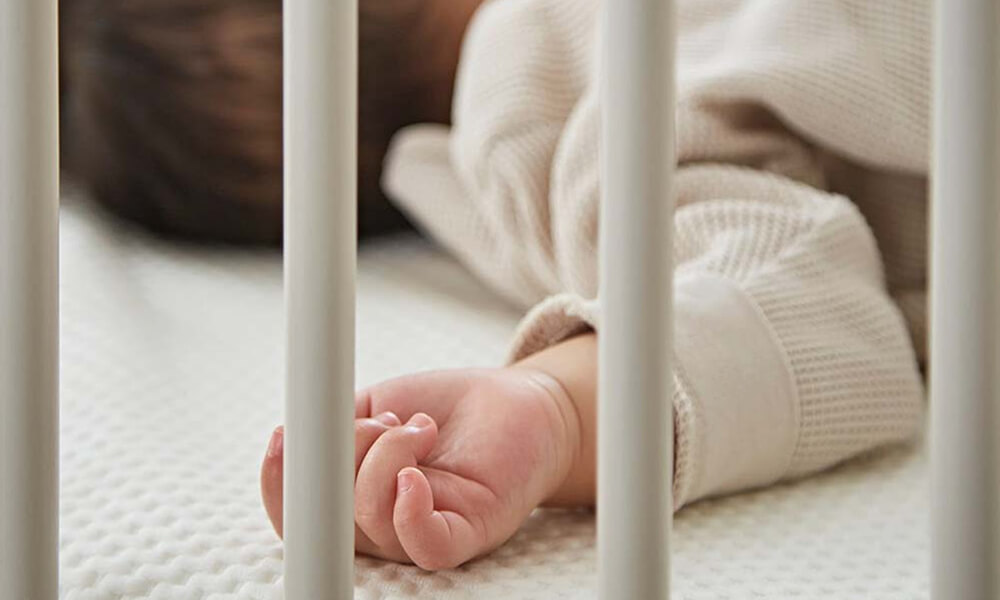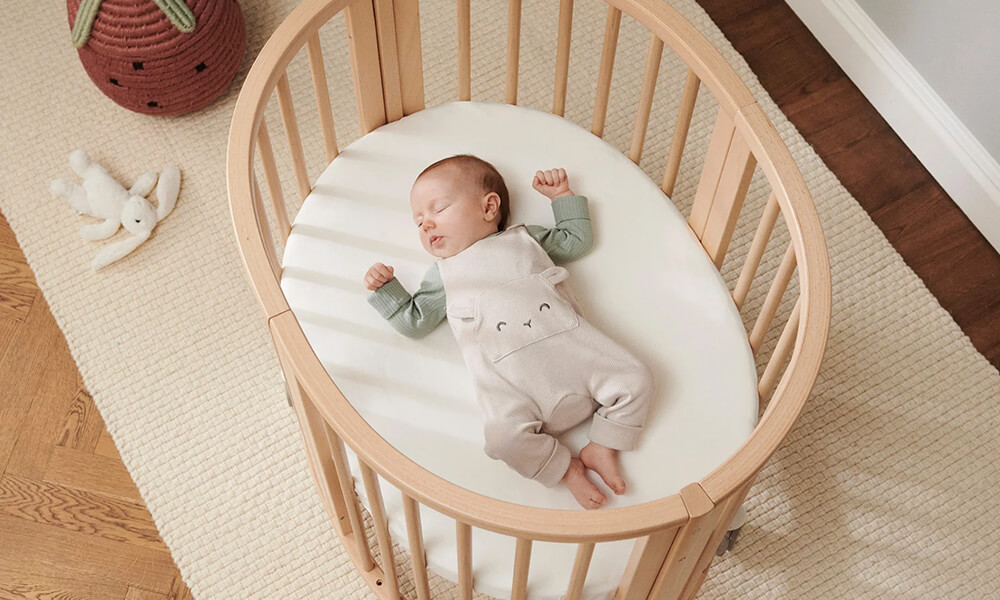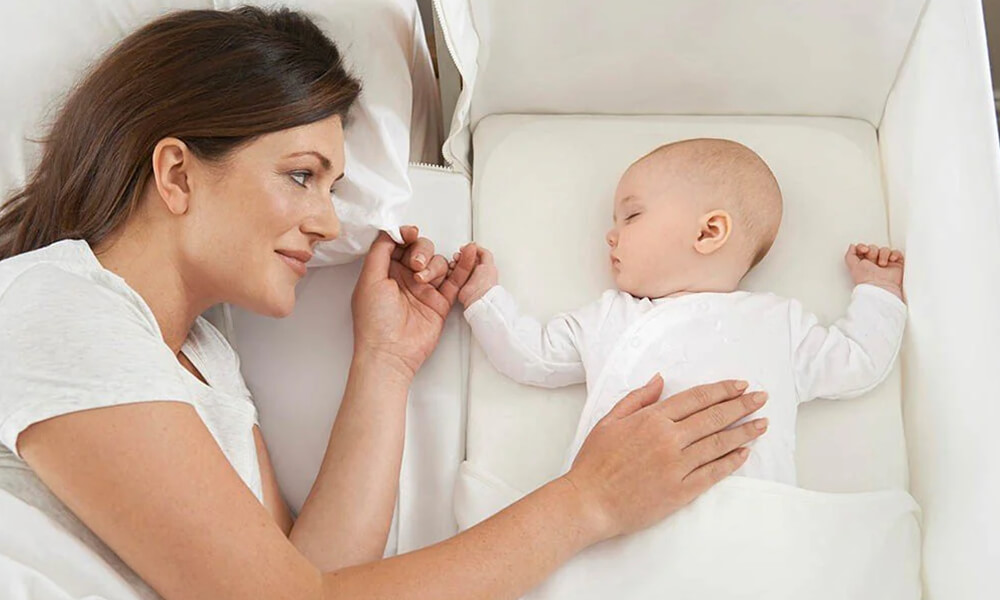Safer Sleep Week 2025: Saving Lives with Better Sleep Practices for Babies.
Safer Sleep Week 2025 is here! From March 10th to 16th, we will be raising awareness about sleep practices for babies. This is an opportunity for everyone to come together and make sure that every parent and carer is aware of the crucial steps that can save lives.

The importance of safer sleep cannot be overstated. Research shows that greater awareness of safer sleep practices leads to a decrease in the number of babies who die from sudden death syndrome (SIDS). Yet, tragically, about four babies still die every week in the UK from SIDS. However, if all parents were equipped with the right information and advice, many of these deaths could be prevented.
What is Safer Sleep Week?
Safer Sleep Week is a week dedicated to educating families, carers, and the wide community about how to reduce the risk of sudden infant death syndrome (SIDS) and promote safer sleep practices. We’ll be raising awareness across social media, in national media, and through community outreach about the steps everyone can take to ensure babies are sleeping as safely as possible.

The week-long event offers an opportunity to reach thousands of families, share important sleep safety advice, and bust common myths about baby sleep. In 2025, we will be focusing on three key topics:
- Exploring Baby Sleep Patterns: Understanding how much sleep your baby needs based on their age.
- Busting Baby Sleep Myths: Debunking the myths surrounding baby sleep and assessing the evidence behind products designed to help babies sleep longer.
- Supporting You Through Sleep Deprivation: Offering practical advice for parents struggling with sleep deprivation and showing how to maintain safe sleep practices even when exhausted.
What is SIDS?
SIDS, also known as cot death, is the sudden and unexpected death of a baby, typically during sleep, for which no cause can be found. While it remains relatively uncommon, it is still a cause for concern, and it’s essential that we take the necessary steps to reduce the risk.

The exact cause of SIDS remains unclear, but it is thought to be related to multiple factors that can increase a baby’s vulnerability during the first few months of life. Fortunately, there are simple steps that can be taken to lower the risks.
What Causes SIDS?
Though the exact cause of SIDS is not known, certain factors can increase a baby’s risk. Some of these include:
- Overheating: Babies can be at greater risk if they get too hot while sleeping.
- Obstruction: Covering a baby’s face or head with blankets, toys, or pillows can increase the risk.
- Airway obstruction: Any blockage in a baby’s airway can be dangerous.
- Exposure to cigarette smoke: Babies who are exposed to smoke during pregnancy or after birth are at a higher risk.
By following safer sleep advice, parents can help reduce these risks.
How Can SIDS Be Prevented?
While we cannot eliminate the risks completely, there are several steps parents and carers can take to significantly reduce the chances of SIDS. These steps are particularly important for babies born prematurely or with a low birth weight, as they are at a higher risk.

Here are the key steps to take for safer sleep:
- Always place your baby on their back: This reduces the risk of SIDS by up to six times compared to placing them on their front.
- Sleep in the same room as your baby for the first six months: This can reduce the risk by half. Your baby’s safest sleeping space is in their own clear, flat cot or Moses basket, in the same room as you.
- Keep your baby smoke-free: Avoid exposure to smoke during pregnancy and after birth. Studies show that around 60% of sudden infant deaths could be avoided if babies were not exposed to smoke.
- Never sleep with your baby on a sofa or armchair: This can increase the risk of SIDS by 50 times. Always place your baby on a firm, flat surface for sleep.
- Avoid co-sleeping in certain circumstances: Co-sleeping can be risky if anyone in the bed has recently consumed alcohol or taken medication that makes them sleepy, or if the baby was born prematurely or has a low birth weight.
Safer Sleep Advice for Babies

Safer sleep advice has helped save the lives of over 30,000 babies since 1991. Here’s a quick refresher on how to ensure your baby’s sleep is as safe as possible:
- Always place your baby on their back for every sleep, day and night.
- Ensure your baby’s sleep space is clear of any pillows, blankets, or soft toys.
- Use a firm, flat, waterproof mattress.
- Keep your baby smoke-free during pregnancy and after birth.
- Avoid overheating: Keep your baby at a comfortable temperature.
- Share a room with your baby for the first six months.
My Baby Won’t Sleep: Coping with Sleep Deprivation
If you are a new parent, you are probably all too familiar with the challenges of sleep deprivation. Babies often wake several times during the night, making it hard for parents to get the rest they need. It can be overwhelming, but you are not alone.

Did you know that nearly two-thirds of parents with babies under one year report that their babies sleep for less than four hours at a time? If you’re struggling with lack of sleep, it can feel like a never-ending cycle. But there are tips and strategies to help you cope while still keeping your baby safe during sleep:
- Accept help from friends or family: Don’t be afraid to ask for assistance with chores or caring for your baby, even if it’s just for an hour or two to help you rest.
- Take turns with your partner: If possible, swap shifts with your partner or another trusted caregiver to help manage your baby’s sleep needs.
- Stay awake safely: If you find yourself dozing off while feeding or holding your baby, try to stay awake by doing things that keep you alert, like drinking cold water, watching exciting TV shows, or taking a walk.
Safer Sleep Week is a reminder that even small changes in the way we sleep our babies can make a huge difference in reducing the risk of sudden infant death syndrome. By following the right sleep advice, we can help protect our babies and provide parents with the peace of mind they need during the early months of their child’s life.

